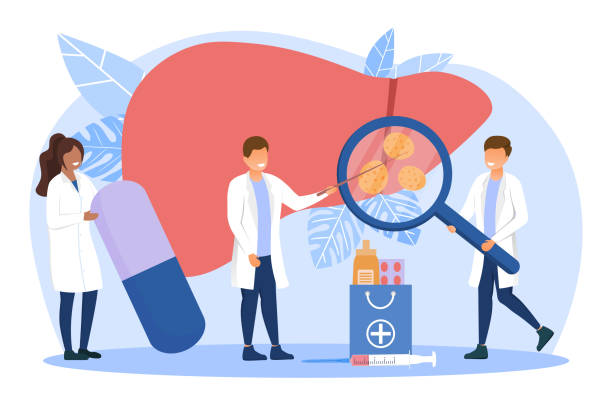Liver cancer, also known as hepatocellular carcinoma (HCC), can present with a range of symptoms, but in its early stages, it may not cause noticeable symptoms. As the cancer progresses, the following symptoms may become more apparent:
1. Jaundice: Yellowing of the skin and the whites of the eyes (jaundice) is a common symptom of liver cancer. It occurs when the cancer obstructs the bile ducts, causing a buildup of bilirubin in the blood.
2. Abdominal Pain: Pain or discomfort in the upper right side of the abdomen, where the liver is located, may occur as the tumor grows.
3. Enlarged Liver or Mass: A palpable lump or enlargement of the liver may be felt by a healthcare provider during a physical examination.
4. Unexplained Weight Loss: Sudden and unexplained weight loss can be a sign of advanced liver cancer.
5. Loss of Appetite: A reduced desire to eat, along with weight loss, is a common symptom of liver cancer.
6. Fatigue: Persistent tiredness and weakness can occur with liver cancer, as the body’s energy resources are redirected to fight the disease.
7. Nausea and Vomiting: Feeling nauseous and vomiting may be associated with liver cancer, especially as the tumor grows.
8. Swelling: Accumulation of fluid in the abdomen (ascites) or swelling in the legs and ankles (edema) can occur due to liver cancer-related fluid retention.
9. Itchy Skin: Pruritus, or persistent itching of the skin, can be a symptom of liver cancer, often related to bile duct obstruction.
10. Pale Stools and Dark Urine: Pale or clay-colored stools and dark urine may result from liver cancer’s impact on bile flow.
11. Spider Veins: The appearance of spider-like blood vessels on the skin, especially on the upper body, can sometimes be associated with liver cancer.
12. Confusion or Cognitive Impairment: Advanced liver cancer can lead to hepatic encephalopathy, causing confusion, memory problems, and altered consciousness.
13. Bleeding or Easy Bruising: Liver cancer can affect blood clotting factors, leading to bleeding tendencies and easy bruising.
It’s important to note that some of these symptoms can overlap with other liver conditions and may not necessarily indicate liver cancer. However, if you experience persistent or worsening symptoms, especially if you have risk factors for liver cancer (such as chronic liver disease, hepatitis B or C infection, or a family history of liver cancer), it’s crucial to seek prompt medical evaluation and diagnosis. Early detection and intervention can be essential in managing liver cancer effectively.
For more information, consult Dr. Vedant Karvir the Best Gastroenterologist in Palghar Practicing at Globus Gastroenterology Hospital



